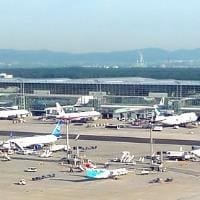(BRUSSELS) – In response to the Coronavirus’ impact on airlines, the EU Commission put forward targeted legislation Tuesday to temporarily alleviate airlines from their airport slot usage obligations under EU law.
An airport slot is the right of an aircraft to take off or land at a congested airport at a certain time of day. Under the EU Airport Slots Regulation (EEC 95/93), airlines are subject to a ‘use it or lose it’ rule, and are required to operate 80% of their allocated slots, or face losing their right to the slot in future seasons.
Announcing the measure, President of the European Commission Ursula von der Leyen said: “We want to make it easier for airlines to keep their airport slots, even if they do not operate flights in those slots because of declining traffic. This temporary measure helps both our industry and the environment. It will relieve pressure on the aviation industry, and in particular on smaller airline companies, and it will also decrease emissions by avoiding so-called ‘ghost flights’ – when airlines fly almost empty planes, simply to keep their slots.”
The COVID-19 outbreak is having a major impact on the international and European aviation industry. With the situation deteriorating on a daily basis, air traffic is expected to decline further in the coming weeks.
The EU’s temporary measure will allow airlines to adjust their capacity in view of the falling demand caused by the outbreak. Without the measure, airlines would have to continue to operate flights, even if largely empty, to guarantee their current slots at EU airports, with a negative impact both economic and environmental.
“The temporary measure will allow airlines to adjust their capacity in view of the falling demand caused by the outbreak,” said Transport Commissioner Adina Valean: “[ ] Given the urgency, the Commission will in due course present a legislative proposal and calls on the European Parliament and the Council to swiftly adopt this measure in co-decision procedure.”
The Commission will shortly adopt a proposal to amend the EU Slot Regulation. This amendment will then need to be approved by the European Parliament and the Council of the EU.


